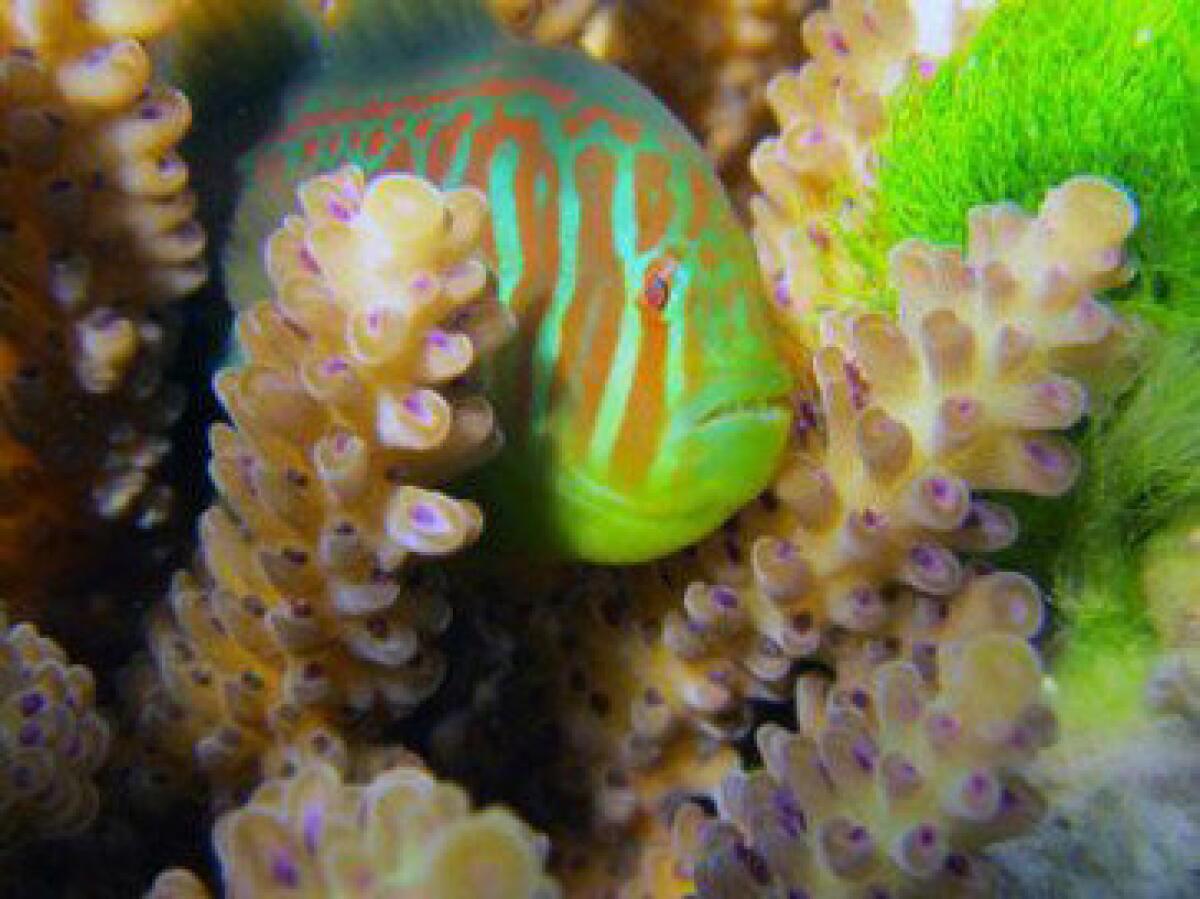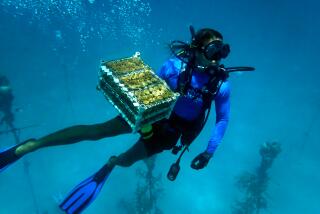When seaweed attacks, corals call on goby fish to bite back

- Share via
Coral under attack from toxic seaweed can actually call for help, recruiting fishy bodyguards to fend off an attacker within minutes, a pair of scientists has found.
When poison-producing algae make contact with coral, the coral can send out a chemical signal that alerts goby fish to come and eat away at the weed, according to a paper released Thursday by the journal Science.
The platoon of gobies provides a last line of defense against toxic seaweed. The seaweed emits harmful chemicals that damage the coral, which it competes with for resources. And warming oceans, overfishing of plant-eating fish and pollution seem to have only aided the seaweed as it attacks the already shrinking reefs.
Gobies are fish that spend their entire lives in a particular coral, taking both food and shelter there. But researchers from the Georgia Institute of Technology suspected there may be more to this relationship than met the eye.
In a series of experiments, they took a common, fast-growing coral named Acropora nasuta, introduced a toxic seaweed, Chlorodesmis fastigiata, and watched to see how different species of fish living among the coral did.
They found that in coral with two different goby species, Gobidon histrio and Paragobidon enchinocephalus, the damage caused by C. fastigiata fell by as much as 80%, compared with goby-less coral. And when they checked the fish’s guts, they found that only G. histrio was actually ingesting the seaweed -- P. enchinocephalus was simply pruning it, not consuming it too. This makes sense, given that the seaweed was poisonous; G. histrio, on the other hand, already secretes toxins as a defense against predators, and noshing on the algae seemed to only strengthen its armor.
The relationship is similar to that between acacia trees and certain tree ants, which will protect their leafy homes by removing harmful bugs (and even elephants). But in the case of the coral, they can actually signal to their little helpers exactly when they need aid.
Of course, gobies eat a little bit of the coral they live in too, but it’s a small price to pay for the protection they offer -- rather like a tax.
But researchers are afraid that a rapidly changing ocean could wreak havoc with these chemical signals.
“A worrisome recent discovery is that chemically mediated behaviors, such as these, that often are critical to reef function can be disrupted or even reversed (i.e., attraction to predator odors) by changes in ocean pH,” the authors write.
Follow me on Twitter @aminawrite.







